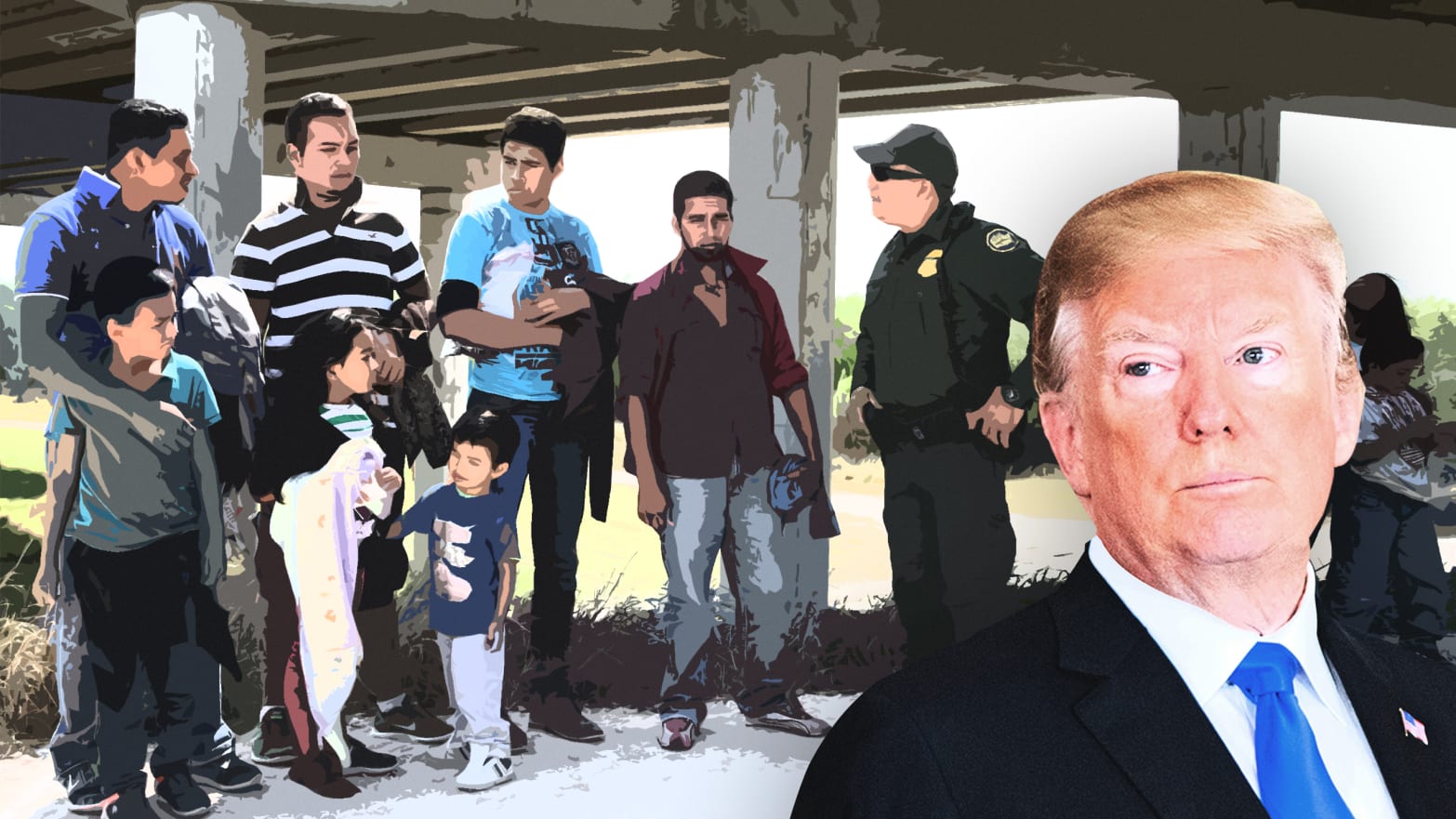News of a Honduran father’s suicide after having been separated from his wife and child is renewing interest in the policy of separating the families of illegal immigrants at the border.
If you haven’t heard about the story, things went south when Border Patrol agents told Marco Antonio Muñoz that he would be separated from his wife and three-year old child. At that point, “The guy lost his shit,” one anonymous agent told the Washington Post. “They had to use physical force to take the child out of his hands.”
This is merely the latest outrage; the uptick in incidents is the result of a new zero-tolerance policy, whereby any illegal entrant is criminally prosecuted. Those defending the policy reason that this is what happens any time a parent breaks the law.
"Children and parents get separated every day across this country when a parent is charged with a criminal offense,” said ICE Acting Director Thomas Homan.
“[E]very time somebody… gets prosecuted in America for a crime… and they go to jail, they’re separated from their children,” echoed Attorney General Jeff Sessions in an interview with talk show host Hugh Hewitt.
This is true, but misleading. If a father gets caught robbing a bank, he will be separated from the child—sure—but the child will likely not be put into a detention facility. Likewise, when a Honduran father (seeking asylum) loses his shit (to paraphrase that Border Patrol agent), it’s not just because he’s being separated from his family, it’s because of the thought that his three-year old son is being taken from both parents, and (for all he knows) he may never see him again.
This terror (by which I mean intense fear or anxiety) is not an unfortunate byproduct of upholding the rule of law—it’s part of the plan. For some immigration hard-liners, the optics—the horror, the mess, the anguish—are a feature, not a bug. The goal is to disincentive border crossings by making them as painful as possible. Word will get out. People will decide it’s not worth it. Problem solved. It’s like the “pre-crime” version of “self-deportation” (an idea Trump called crazy just a few years ago).
“If people don’t want to be separated from their children, they should not bring them with them,” Sessons told Hewitt. “We’ve got to get this message out. You’re not given immunity. You have to, you will be prosecuted if you bring, if you come illegally. And if you bring children, you’ll still be prosecuted.”
Adopting an “ends justifies the means” policy where kids are collateral damage is an interesting turn for a party whose coalition includes evangelicals and pro-family factions who are loud on abortion but silent on this. Was a time when Republicans supported compassionate conservatism, the dignity of human life, and the concept that family values don’t stop at the Rio Grande. Today, in fact, the Republican position seems to be quite the opposite: Yes, family values do stop at the Rio Grande.
To their credit, some outspoken evangelical leaders are condemning this “horrible” policy.
In a June 1 letter to President Trump, signed by Russell Moore, President of the Ethics & Religious Liberty Commission, and other prominent faith leaders, the group noted that “God has established the family as the fundamental building block of society,” adding that “The state should separate families only in the rarest of instances.”
The letter goes on to advocate for a return to common sense measures, whereby law enforcement officers would be empowered to handle things on a case-by-case situation. As they note, a zero-tolerance policy “removes that discretion—with the effect of removing even small children from their parents. The traumatic effects of this separation on these young children, which could be devastating and long-lasting, are of utmost concern.”
The letter was signed before the suicide of that Honduran dad, but other evangelical voices have weighed in on the latest development. “The way America casually discards babies—whether in the womb or at the border—is a searing indictment of the way we think about their humanity,” tweeted Daniel Darling, Vice President of the Ethics & Religious Liberty Commission of the Southern Baptist Convention, before adding: “Heaven help us.”
I’m with them. If you want to have tough immigration laws, that’s a legitimate policy choice. But the implementation of these policies must be done in a compassionate manner. There’s nothing mutually exclusive about protecting our borders and being humane.
Now, in the real world, mistakes are made. But these mistakes should always be the result of officials not living up to our standards, rather than ruthlessly living down to our expectations. The French statesman Alexis de Tocqueville probably never said “America is great because she is good, and if America ever ceases to be good, she will cease to be great,” but that doesn’t mean the sentiment isn’t true.
Yes, there is an added burden that makes it more difficult (and costly) to act humane. But—here’s the thing—we do it because we hold ourselves to a higher standard. We do it because we stand for values and ideas that transcend power and efficiency. We do it because we’re Americans.

